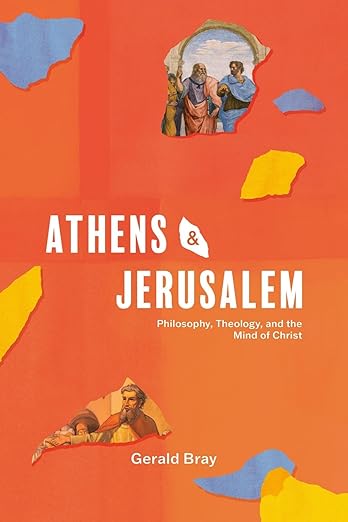Date: April 20, 2025
The Ultimate Sign
The Point: Jesus’s resurrection makes eternal life possible.
Get Into the Study
TEXT
Have you heard of microplastics? What about “forever chemicals?”
Research shows that microplastics particles, “smaller than a grain of rice, can harm reproductive, digestive and respiratory health, potentially leading to colon and lung cancers,” as well as increasing the risk for dementia. When a plastic bottle is squeezed or exposed to heat, tiny particles break away from inside the bottle and enter the water, from which they enter (and remain inside) the human body. As one headline terrifyingly put it, “there are enough microplastics in your brain to make an entire spoon.” A new scientific paper indicates that switching from bottled water to filtered water “could cut your microplastic intake by about 90%.” Understanding more about microplastics and how they remain in the human body – in organs, tissues, blood, and even in babies in utero– has many people rethinking the old assumptions about plastic.
Meanwhile, lawmakers in Canada, and many U.S. states, are considering bills to tamp down on “forever chemicals.” These nearly-indestructible man-made chemicals, called PFAS (per- and poly-fluoroalkyl substances) are found in water-repellant products and non-stick cookware. Exposure to forever chemicals have been linked to cancers, growth abnormalities, and decreased antibody responses.
Say: “While microplastics, and the long life-cycle of chemicals that exist in our environment and bodies, are a growing concern, these concerns are not eternal. Like the disciples, we can get so focused on practical details in front of us, that we miss the big picture of what God has eternally accomplished through Jesus.
Then point people to The Point: Jesus’s resurrection makes eternal life possible.”
Information for this post was gleaned from:
- https://www.epa.gov/pfas/pfas-explained
- https://nypost.com/2025/03/05/health/making-a-single-change-can-drastically-cut-microplastics-intake/
- https://www.courthousenews.com/scientists-detect-higher-microplastic-levels-in-brains-linked-to-dementia/
- https://www.fastcompany.com/91289378/there-are-enough-microplastics-in-your-brain-to-make-an-entire-spoon
- https://www.nrdc.org/stories/forever-chemicals-called-pfas-show-your-food-clothes-and-home
- https://www.ctvnews.ca/politics/article/canada-advances-toxic-label-for-forever-chemicals-phased-regulation-approach/
- https://tennesseelookout.com/2025/03/04/bill-pushing-sound-science-would-impact-future-regulations-on-forever-chemicals/
Get Into the Study (Option from Adult Leader Guide)
In advance, play a video clip of someone telling a good, clean joke. Then ask Question #1.
Study the Bible
Use the following information to introduce Question #4.
The Hindu holiday of “Holi” gives a vibrant appearance on social media, where you may have seen participants running through sunlit clouds of brightly-hued dust. 2025’s celebration fell on March 13-14. With the colorful powders used as part of the festival of colors, westerners who visit during this festival often view it like a “fun run”– an unusual and memorable experience – without digging any deeper. To millions of Hindus, in India and around the world, however, the meanings are more significant
At the start of the holiday, a bonfire is lit to symbolize victory over evil. The festival refers back to stories of demon kings, trickery, fire, and a demoness. In the morning, the community comes together to set aside grievances and enter into the newness of spring with unity and joy. Crowds gather, “joyfully smearing colours on each other and celebrating with music and dance.” The special powders in vibrant colors are splashed in the air, and spread on one another, and water guns are used as well, to add to the playfulness of the morning. Special foods– sweets, flatbreads, dumplings, and nuts– are enjoyed together.
Say: “This Hindu holiday refers back to themes of trickery, lies, and utter destruction, and the victory of good over evil. While Hindus use this holiday as a time for granting forgiveness and pursuing unity, it is a far cry from truth and the reality of forgiveness and unity that comes through Christ. As Christians, we should consider how we can use ideas and themes from such non-Christan holidays as a bridge through which we can communicate the truth about Jesus and His eternal victory over evil.”
Proceed with asking Question #4.
Information for this post was gleaned from:
- https://www.financialexpress.com/life/lifestyle-holi-2025-date-time-history-significance-and-importance-3768197/
- https://www.ndtv.com/offbeat/holi-2025-when-will-holi-2025-be-celebrated-march-14-or-15-7842443
- https://timesofindia.indiatimes.com/life-style/soul-search/holi-2025-when-is-holi-march-13-or-14-date-rituals-timings-and-all-you-need-to-know/articleshow/118758225.cms
Additional Questions
Ice Breaker
- When was the last time you had a day when everything seemed to go wrong?
- When have you had something unexpected happen that made you happy?
- In your opinion what makes a good joke?
- What dad joke makes you groan every time you hear it?
John 20:1-2
- Why is it significant that Jesus’s tomb was empty?
- What does the empty tomb communicate about Jesus’s identity and purpose?
- Why is the resurrection the central message of all Christianity?
- What questions come to mind when you consider the empty tomb?
- What do you appreciate about Mary Magdalene from this passage?
John 20:11-16
- How do you know that Jesus is alive?
- How does the truth that Jesus is alive shine hope into the darkest moments of our lives?
- When have you misread what God was doing in a situation?
- How does the reality that Jesus is alive turn our sorrows into joy?
John 20:17-18.
- In what ways can believers share Christ’s good news with others?
- How can we contextualize the gospel for different audiences without compromising the message?
- What are some ways you’ve heard others respond to the resurrection of Jesus?
- How has your life been changed because of Jesus’s resurrection from the grave?
- When have you experienced great joy following a time of sorrow?
Podcast
Click here for a 20-minute podcast for both the group member and the leader.
Podcast: Play in new window | Download
Subscribe: RSS
Podcast (adultsleadertraining): Play in new window | Download

 20 hours ago
4
20 hours ago
4













 English (US) ·
English (US) ·